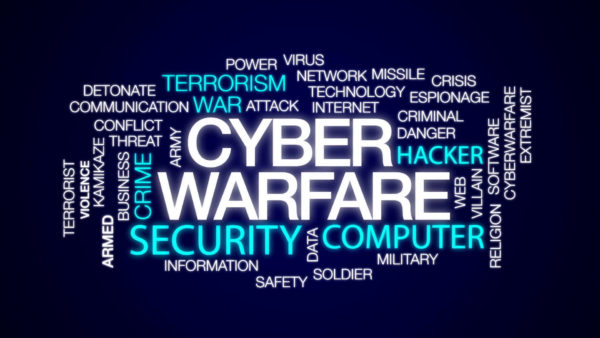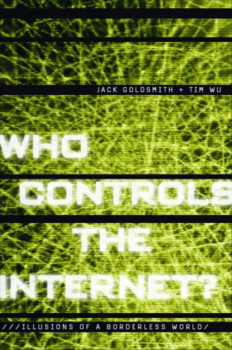‘This short study was prepared by the website owner on 14.10.2021 and does not pursue any political or other purpose. Shared for information purposes only and reflects a technologist’s point of view’.
Overview / Objectives:
In this task, contributor is asked to analyze the book: Who Controls the Internet? Illusions of a Borderless World.
And finding requested questions answers and share their own approach, solution about that:
- What does the idea that “Internet’s challenge to government’s authority would diminish the nation-state’s relevance” (p 3) mean? Please explain and bring at least 3 examples.
- Find one argument in the text that you do not agree to. Explain.
- What do you think, why is this book dedicated to Larry Lessig?
Introduction:
Who Controls the Internet? Illusions of a Borderless World: The book written by Prof. Jack Landman Goldsmith and Prof. Tim Wu.
Jack Landman Goldsmith: [American lawyer and Harvard Law School professor who has written extensively in the fields of international law, civil procedure, federal courts, conflict of laws, and national security law He has been “widely considered one of the brightest stars in the conservative legal firmament.”[quote: Wikipedia]]
Timothy Shiou-Ming Wu: [Legal scholar and professor of law at Columbia University (on leave), he is the author of several books, and was previously a contributing opinion writer for The New York Times. He is known legally and academically for significant contributions to antitrust and communications policy, and popularly, for coining the phrase “network neutrality” in his 2003 law journal article, Network Neutrality, Broadband Discrimination. [quote: Wikipedia]]
The book was published in 2006 (Oxford University Press, Inc) and consists of an introduction and three main parts. The book describes the French government’s lawsuit against Yahoo (case: neo-Nazism), the internet’s infrastructure, government (governments) efforts to control the internet, geofencing facilities, and local laws’ efforts to manage technology.
On the other hand, the book practically reflects about some of the issues that require cyber threats, interstate technology diplomacy (cyber diplomacy), international law and agreements (case: Alexey Vladimirovich Ivanov). Although the book was published in 2006, when we evaluate it from various perspectives, it is seen that some issues are not fully resolved or answered yet.
Questions / Findings:
What does the idea that “Internet’s challenge to government’s authority would diminish the nation-state’s relevance”?
In order to find answers to the questions, it necessary to look at the last three decades, observe the changes and find the answers with comparisons. For this, the questions could be extended into three categories and the examples in this category will help to find answers to the questions from various angles.
- 1990-2000 (The existence of the Internet, the beginning of its spread)
- 2000-2010 (State efforts to strengthen control over the internet)
- 2010-2020 (Rapid transformation of the internet, technology pollution of the states, digital to weaponization)
In fact, it didn’t take long for the Internet (www) to spread rapidly after its existence and for states to take control of the Internet. Therefore, as its authors have supported in many issues, the internet has never been completely “independent”, and towards the end of the ’90s, some telecommunication laws began to tighten the freedom of the internet and keeping it under control. The realization of the goals of the states in this matter was shaped in two ways, as mentioned in the book, from top to bottom and as a result of the pressure of the bottoms on the tops, the necessity of some control mechanisms and laws was revealed [case: LambdaMOO1]
In the 2000s, issues such as how to keep the internet under control by states, problems in legal, internet-based business infrastructure, some global threats started to gain importance, and issues such as how to control the internet came to the fore. In this process, the process of transforming the core internet infrastructure and the internet/technology of the states to their own interests has accelerated. From my point of view, starting from this period, with the growth of the Internet-Business structure and the problems it brought with it, user laws, human rights were stuck between state and business. When the Yahoo incident is examined, one of the examples is the Yahoo founder, who was an advocate of internet freedom before, but later turned into a pawn of China with commercial interests, transferring user information to the Chinese government and establishing a filtered Yahoo infrastructure to meet the demands of the Chinese government.
The evolution of the Internet has also begun to reveal some governments’ efforts to shape technology not only locally but globally. The realization of some state-organized attacks accelerated the transition of technology to another dimension. [e.g., Estonia-20072, Iran 2010- Stuxnet3]

Now, when we enter the last ten years, the use of the technological environment by states for their own interests has moved to the top. The monitoring, manipulation, and information pollution of the internet and social networks are increasing rapidly. At the same time, we see that the human laws on the internet are getting narrower. While we observe the internet to be moved to another phase, such as the digital world shaping the industry four, at the same time, we are currently following the process of how the technology is polluted by the states and transforming into a cyber weapon. With simple observation, if we recall ARPANET (Advanced Research Projects Agency Network), this project was developed by the United States Department of Defense for its own purposes and was the birth of the world wide web (internet). Again, the “world wide web” is now used by states for their own purposes. A simple example: In March 2017, WikiLeaks shared leaked information about multipurpose hacking tools developed by CIA: Central Intelligence Agency [src: Vault 7: Projects4]. Of course, it is possible to give examples from China, Russia, and other countries. By analyzing the NCPI, it is possible to observe the capacity of the Technology and Cyber structure of the states that have serious importance in this regard [NCPI: Belfer National Cyber Power Index5].
On the other hand, nowadays, the “world wide web” ideology of the 90s is drifting towards localization and fragmentation. Because one of the questions today is “who owns” Cyberspace and how to dominate it. It is possible to see an example of this as a practice in some legal changes and some projects implemented by China and Russia [e.g.,: Splinternet6].
[The splinternet (also referred to as cyber-balkanization or internet balkanization) is a characterization of the Internet as splintering and dividing due to various factors, such as technology, commerce, politics, nationalism, religion, and divergent national interests [quote: Wikipedia]].Returning to the question at the end of our research, as time goes on, the “independent, uncontrollable internet” has created an opportunity for some states to have more control and more cyber strength. On the other hand, the internet leaves some small-scale governments globally vulnerable to technology risks. Many 3rd countries still face serious challenges in these matters.
On the other hand, the paragraph that caught my attention the most in the book: Nicholas Negroponte “cannot be regulated” expression is not in the same position today. Nowadays, the Internet is observed by some states to be more easily controlled within their own borders, in line with their own interests.
In addition to the answers to the questions, when we examine the topics covered by the authors, we observe that there are still serious legal problems when we look at a 30-year period. We see that some of the issues mentioned by the authors still have legal gaps on a global or local basis, most of the laws are not implemented in practice or there are difficulties in implementation. The most important problem here, it seems, is that states remain silent on some issues or do not feel responsible for their own interests. As mentioned in the book, the Russian hacker’s intervention in a business infrastructure in the USA and the CIA’s imprisoning a Russian citizen by another method, and at the same time the CIA’s intervention in that person’s computer in Russia without the Russian Government permission. CIA had to use its own method because state authorities of Russia cannot help to CIA. This is an issue of international law. [ case: Alexey Vladimirovich Ivanov].
To this day, such problems are still unresolved. Although there are legal agreements between many countries on cyber threats, in my opinion, there is a need to establish a virtual central legal system to solve these problems. And all their states must be compelled to submit to this central rule. For example, the country that is not under the supervision of the EU umbrella is not affected by the EU-based law. When we return to the Yahoo problem, we observe that the law functions locally and that similar problems are still not fully resolved yet [case: RTBF-Right to be forgotten7]. In other words, the virtual implementation of laws within the physical boundaries of states is a mess. A central legal infrastructure is needed [Prof. Martti Koskenniemi International cyber law8].
What do you think, why is this book dedicated to Larry Lessig?
I had the chance to learn some information about Prof. Lawrence life and listened to his speeches. Prof. Jack Landman Goldsmith and Prof. Lawrence Lessig Harvard Law School same status in same school and are almost they are in same age. However, while writing this book, it seems like the writers were inspired by Prof. Lawrence Lessig, and books articles was also inspired by Prof. Lawrence Lessig publications. When we look at Wikipedia, Prof. Lawrence Lessig seems to have had publications on almost the similar subjects a few years ago.
Conclusion:
As it can be seen from the topics discussed, it is seen that the internet does not reduce the importance of states, but technology and internet increase the power and importance of some states with control. The control of the Internet is the control of the digital age and digital nations.
Added (15.07.2022) : Immediately after the crisis between Russia and Ukraine, it was once again revealed that cloud technologies, which are an important part of the internet, are under state control. When it comes to the restrictions on Russia, the famous cloud vendors who support these restrictions have reminded us that internet technologies are not fully independent and the significant collapse in the international agreement/process can cause serious harm, particularly in small-scale countries from the technological point of view. And, in order to avoid such consequences in the future, it is unavoidable that small countries will develop internal/national secure cloud services for critical services (at least at the software level).
Resources:
- https://en.wikipedia.org/wiki/A_Rape_in_Cyberspace
- https://en.wikipedia.org/wiki/2007_cyberattacks_on_Estonia
- https://en.wikipedia.org/wiki/Stuxnet
- https://wikileaks.org/vault7/index.html#Protego
- https://www.belfercenter.org/publication/national-cyber-power-index-2020
- https://en.wikipedia.org/wiki/Splinternet
- https://en.wikipedia.org/wiki/Right_to_be_forgotten
- https://www.youtube.com/watch?v=nh5FGswBIm0

Good post. I will be experiencing many of these issues as well..